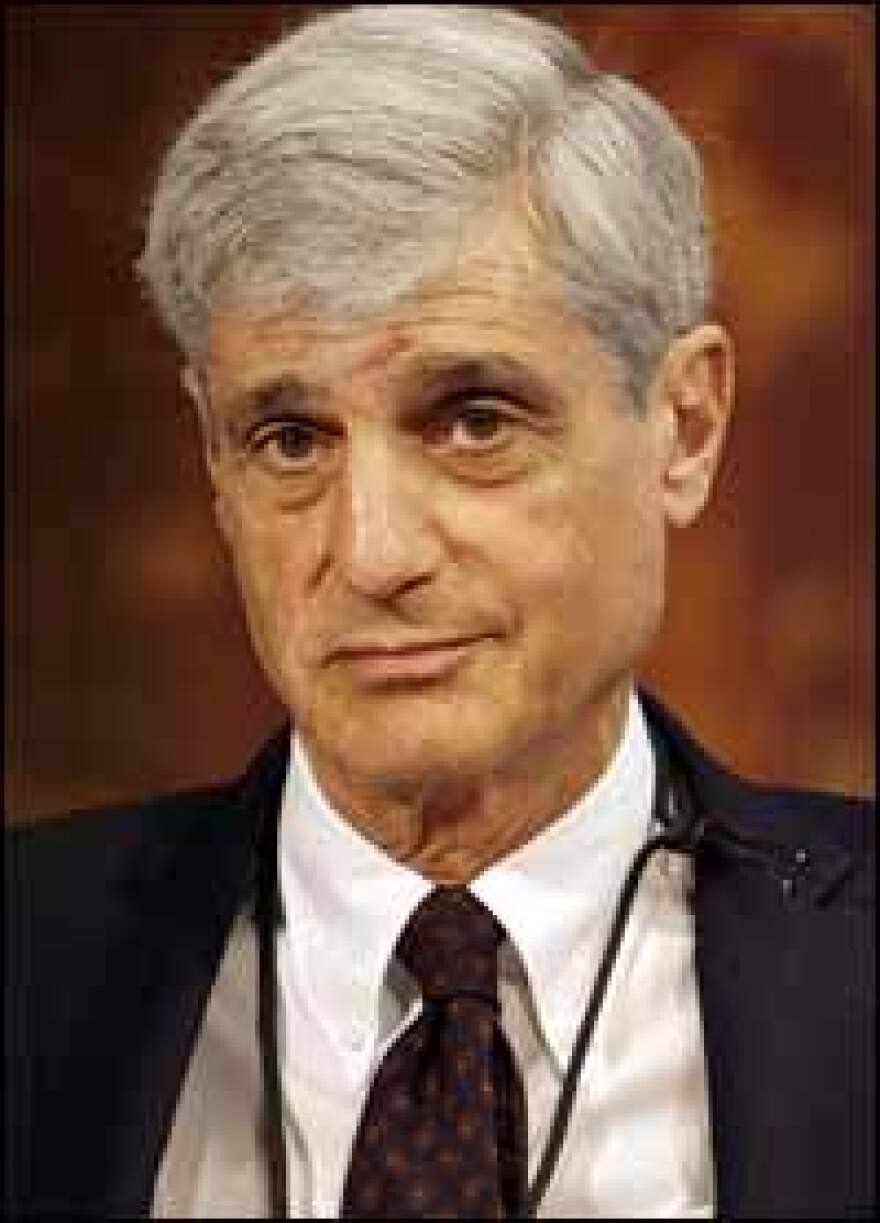
As the U.S. economy slows, the Bush administration and Congress are struggling to decide how to respond. Hiring is down, real estate is in a coma and banks have suddenly become a lot more skittish about whom they'll lend money to. Whether the economy will actually slip into a recession is a matter of some debate.
Coming up with a solution is no easy task. Policymakers don't know whether the economy is just stalling for a bit or spiraling downward into a major crisis.
At the Brookings Institution in Washington on Thursday, some of the country's best-known economists gathered to discuss possible solutions. Among those present was Martin Feldstein, a former Reagan administration official who is said to be advising the White House on what to do. Feldstein said that Washington needs to find ways to get ahead of the problem.
"What we're talking about now is a pre-emptive strike: What do you do to stop the economy from turning down — and if it does, to make it milder?" Feldstein said.
The trick, according to former Treasury Secretary Robert Rubin, is to design a stimulus package while sidestepping the ideological and partisan fault lines that crisscross Washington. Rubin said that a stimulus package should be timely and work quickly. Tax policy and education may be vital issues to the economy, Rubin said, but the recession is likely to be over long before they can be resolved.
"Let's not worry about long-term marginal tax cuts, infrastructure, social spending, all of which are important issues. Keep that out of it," Rubin said.
What the government can do quickly is hand out money in the form of tax rebates and credits. Injecting the economy with a quick hit of cash would goose spending. But where should the money go to have the maximum effect? Former Federal Reserve member Alice Rivlin would like to see the federal government pass funds directly to the states, some of which — like California, Arizona and Florida — are already in recession.
Another suggestion has been for the federal government to pump more money into food stamps. Martin Feldstein noted that it could be done quickly and it would go to the very people most likely to spend it quickly. Feldstein was cooler to another proposal: letting people collect unemployment benefits for a longer period. But he said that could actually slow the economy's recovery.
"What it does is increase the incentive to stay unemployed," Feldstein said.
But economist Mark Zandi of Economy.com took issue with that.
"No one is more panicked than a person that loses their job. No one cuts back more on spending. That's pure panic. It's key to helping those folks," Zandi said.
Zandi also disagreed with parts of another proposal that has been promoted by Feldstein lately. The Harvard economist has talked about making any stimulus package triggered. That is, Congress would vote to pass out rebate checks now, but they would only be sent out if the economy slowed sufficiently — if, for instance, job growth declined for three consecutive months. Feldstein says that will give consumers confidence that help will come if it's really needed. But Zandi was skeptical.
"If you tell them they might get [a rebate check], it doesn't shore up confidence," Zandi said.
One thing everyone agreed on Thursday is that the Federal Reserve needs to keep cutting interest rates and do so aggressively. That may not revive the housing market anytime soon — simply because the sector's problems run so deep — but doing so, they said, is the best way to ensure that the rebound gets under way.
Copyright 2023 NPR. To see more, visit https://www.npr.org.



